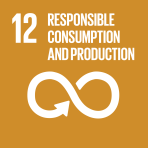- Home
- Sustainable Development Goals
- Responsible Consumption and Production
 Responsible Consumption and Production
Responsible Consumption and Production
Acknowledgements
This study has been drafted by Stefano Inama Chief EIF and technical assistance section UNCTAD; Mark Pearson UNCTAD consultant; and Themba Munalula Chief Statistician COMESA Secretariat.
Conclusions
The SDGs highlight the many dimensions of sustainability and stress the importance of international trade and trade policy to achieve their goals. International trade brings several benefits to people and countries but it can also pose significant challenges. This report has discussed the importance of VSS as an instrument to make trade more sustainable. Besides explaining VSS and discussing their achievements and challenges it has identified how they relate to other policy instruments. Each of the chapters provides some key takeaway messages.
Evidence from Utilization Rates: a Roadmap for COMESA Trade Policy Makers and Private Sector
The overall evidence emerging from the URs analyzed in this study is that preference utilization in the north-south trade from COMESA countries using unilateral or contractual trade preferences under QUAD preferences is generally in the high range albeit with pockets of underutilization.
Resumen ejecutivo
La crisis mundial generada por la pandemia de enfermedad por coronavirus (COVID-19) ha puesto en evidencia las asimetrías existentes entre las economías desarrolladas y las economías emergentes y en desarrollo en lo que respecta a su capacidad de respuesta tanto para implementar políticas encaminadas a mitigar los efectos sanitarios económicos y sociales de la crisis como para impulsar una recuperación sostenible.
Foreign direct investment in the region’s pharmaceutical industry
In the wake of the coronavirus disease (COVID-19) pandemic the pharmaceutical industry has emerged as a strategic sector for the well-being of people worldwide. In Latin America and the Caribbean the countries manifested their interest in the region re-evaluating its productive and technological capacities in health-related goods and services as evidenced by the plan approved unanimously at the Summit of the Community of Latin American and Caribbean States (CELAC) in 2021.
Executive summary
The global crisis caused by the coronavirus disease (COVID-19) pandemic has highlighted the asymmetries in response capacity between developed economies and emerging and developing economies whether it comes to implementing policies to mitigate the health economic and social effects of the crisis or to fostering a sustainable recovery.
Effectiveness of VSS
Given that VSS have become important governance instruments to foster sustainability along GVCs it is important to understand whether these systems are effective in achieving positive sustainability impacts. Many factors determine the effectiveness of VSS including their institutional design the content of their standards and the socioeconomic and political context in which the standards are implemented. In general the effectiveness of VSS can be analysed along two dimensions: their impacts on the ground based on various sustainability parameters and their adoption.
Acknowledgements
This report has been prepared by Dr. Axel Marx Deputy Director Leuven Centre for Global Governance Studies University of Leuven and Ms. Charline Depoorter also of the Leuven Centre for Global Governance Studies in collaboration with Santiago Fernandez de Cordoba and Niematallah E.A. Elamin UNCTAD. The report is based on the University of Leuven’s online edX course “Sustainable Trade”.
Economic outlook and risks for Latin America and the Caribbean in 2022
Latin America and the Caribbean’s growth rate of almost zero before the COVID-19 crisis (0.3% in the six-year period ending in 2019) combined with a sharp contraction in 2020 (-6.8%) as a result of the pandemic further exacerbated the structural problems already being experienced in the region: weak investment and productivity informality unemployment weak coverage of social protection and health systems and high levels of inequality and poverty (ECLAC 2021).
Introduction: Rationale and objective
In 2015 Member States of the United Nations adopted the 2030 Agenda for Sustainable Development containing 17 Sustainable Development Goals and 169 targets. In resolution 70/1 the General Assembly stated that the Goals and targets would be followed up and reviewed using a set of global indicators focused on measurable outcomes. Consequently the Inter-Agency and Expert Group on Sustainable Development Goal Indicators was established to develop a global indicator framework to monitor implementation of the 2030 Agenda for Sustainable Development.
